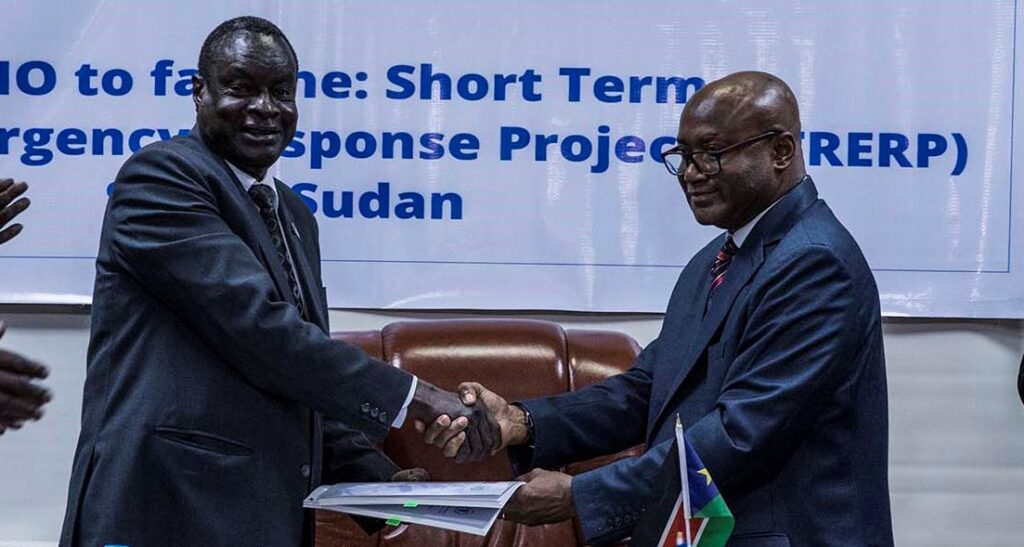The African Development Bank (AfDB) gave $43.57 million to help in the fight against hunger in South Sudan, where hunger has reached unprecedented levels.
The project is designed to enable the government to meet the country’s growing food and nutrition needs, while building community resilience.
AfDB’s country manager, Benedict Kanu, told reporters in Juba on Wednesday that the contribution reflects the bank’s commitment to support its regional member countries in addressing the drivers of food insecurity and unstable food production systems.
“The Bank’s approach goes beyond addressing the immediate humanitarian needs through food assistance, but also seeks to build resilience of the affected communities and strengthen the capacity of government institutions to effectively plan, coordinate and implement disaster risk management and humanitarian responses. We call on all development partners to work together to address the underlying drivers of vulnerability in drought-prone areas,” Kanu said.
According to the agreement, the grant will be implemented by the United Nations World Food Programme (WFP).
“We are very grateful for the contribution from the Bank,” said Adnan Khan, WFP Country Director in South Sudan. “It will go a long way in helping us provide life-saving support at a critical period and ensure people have the means to feed themselves not only today but also in the future.”
Despite the harvest in September, as many as 5.2 million South Sudanese will remain in Integrated Food Security Phase Classification (IPC) Phase 3 (Crisis), not knowing where their next meal would come from between January and March 2019, with some 36,000 people forecast to be in Phase 5 (Catastrophe), experiencing famine-like conditions in parts of the country, according to the latest IPC report.




